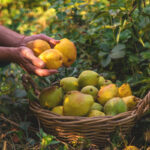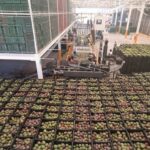Mexico: Berry association says industry not affected by U.S. border delays

Mexican berry association Aneberries has said that the industry has not been negatively affected by the delays crossing the U.S. border over the last couple of weeks, despite local media reports that sales had been significantly impacted.
Aldo Mares, the organization's president, said that the situation was regularizing, following an increase in average wait times from two to six or seven hours.
The delays are the result of the U.S. Government reassigning some 750 agents from their normal assignments at specific ports of entry on the border, and reassigning them to help process the migrants who have been crossing the border illegally and seeking asylum.
"Many of the agents who were reassigned to immigration matters are now returning to their positions and we can say that [the wait times] have regularized greatly. I don't know if it's going to continue like that, but this week has been much better than the previous weeks," Mares said.
He said the main challenge for the supply chain had been adapting to the different timings for border checks, but he said: "In berries, no company has reported losses or economic impacts at the moment."
Transporters have absorbed most of the additional costs of having refrigeration units operating for longer periods, he added.
"We know that packing companies have been very affected because those delays affect their production lines, but in terms of the berries we haven't seen a direct impact," he said, adding the association has not seen "any threat to sales at the moment".
Rising volumes
Mares also explained that Mexican berry exports continue to grow rapidly. In 2018 the total value rose 16% year-on-year to US$2.24 billion, he said.
"We're expecting 2019 to continue with the same pace of growth we have experienced over the last few years," he said
Blueberries saw the strongest growth in export volume, rising 63% in volume from the 2017-18 season to the 2018-19 season, while raspberries grew 18%. However, strawberry volumes fell by 3% and blackberries by 17%.










































